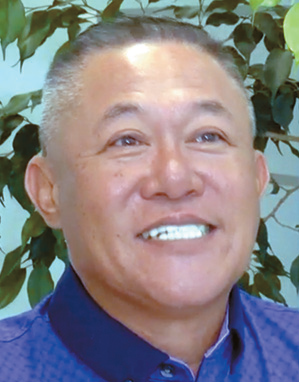A Korean American Army veteran who received a Purple Heart for his service has been deported to South Korea, nearly 16 years after a drug-related conviction triggered a long-standing deportation order.

Sejun Park (55), a U.S. permanent resident, left the United States for South Korea on June 23, according to a report by NPR. Park, who had been living in Hawaii, told NPR, “The hardest part was saying goodbye to my 85-year-old mother. I can’t believe something like this is happening in the country I risked my life to defend.”
Park came to the U.S. from Korea at age 7 with his mother, first settling in Miami before growing up in Los Angeles. At 20, he enlisted in the U.S. Army and was deployed to Panama after completing basic training.
In 1989, Park was injured by gunfire during Operation Just Cause, a U.S. military operation aimed at removing dictator Manuel Noriega from power. He was honorably discharged and awarded the Purple Heart for his combat wounds.
However, the U.S. government did not recognize the Panama mission as an official war, disqualifying Park from expedited naturalization benefits typically available to veterans. Because he was honorably discharged before completing 12 months of active duty, he remained a permanent resident rather than becoming a U.S. citizen.

After his discharge, Park developed severe post-traumatic stress disorder (PTSD), including symptoms such as nightmares, anxiety, and heightened sensitivity. He turned to drugs and, in 2009, was arrested in New York after attempting to purchase narcotics from a dealer. He also failed to appear in court, violating bail conditions, and was sentenced to three years in prison.
Following his release, U.S. Immigration and Customs Enforcement (ICE) issued a deportation order. However, under the Obama administration, Park was not classified as a priority for removal. ICE allowed him to stay in the country under supervision, requiring only annual check-ins.
That policy shifted under the Trump administration. During a routine ICE appointment in Hawaii, Park was informed that unless he left the country voluntarily within weeks, he would face detention and forced removal. He chose to leave the U.S. voluntarily.
Park had been living in Hawaii with his son and daughter and working as a car dealer, maintaining sobriety and complying with all ICE reporting requirements. Despite those efforts, the intensified enforcement targeting noncitizens with prior convictions led to the enforcement of his deportation order.
“I’ve taken full responsibility for my mistakes and have reflected deeply,” Park said. “But deportation is an extremely harsh penalty. I hope to return once Trump leaves office.”
BY KYEONGJUN KIM [kim.kyeongjun1@koreadaily.com]
![From Pulpit to Motorcade: How a Mega-Church Pastor Turned LAX Into His Personal Red Carpet Men in suits are directing traffic on the roadway in front of the Tom Bradley International Terminal at Los Angeles International Airport. Rev. Younghoon Lee is stepping out of a stopped vehicle. [Instagram capture from @joy.of.everything]](https://www.koreadailyus.com/wp-content/uploads/2026/02/0206-pastor-2-100x70.jpg)


